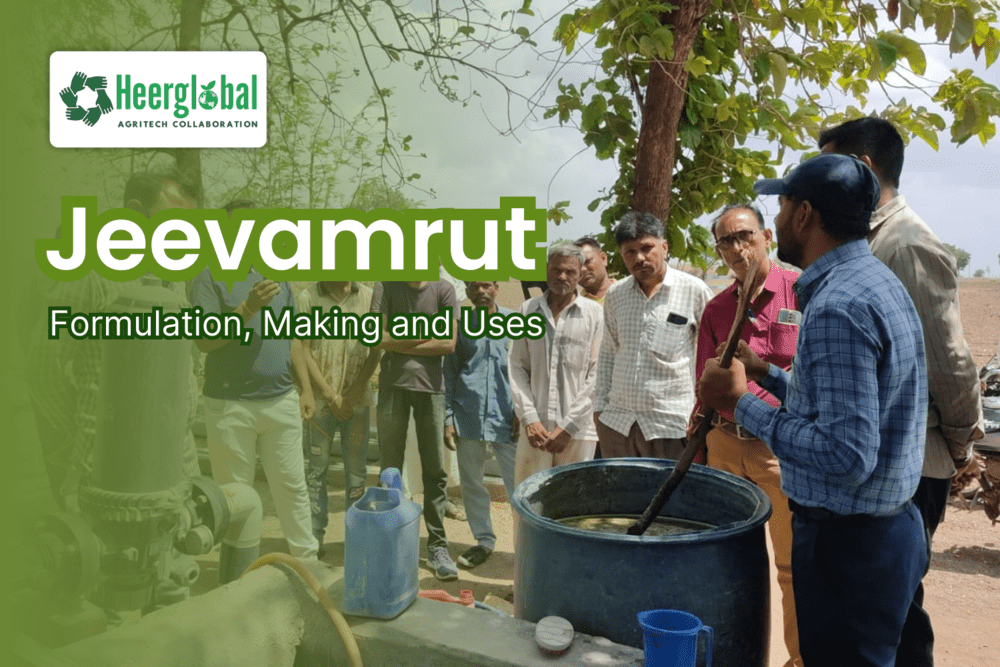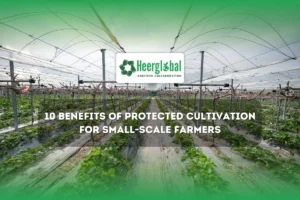What is Jeevamrut? Formulation, Making and Uses of Jeevamrut
Jeevamrut is a type of organic fertilizer and soil conditioner that is used in sustainable farming practices, particularly in organic and natural farming methods like permaculture and biodynamic farming. It is known for its ability to improve soil health, increase crop yields, and enhance the overall sustainability of farming. Jeevamrut is often considered an alternative to chemical fertilizers.
Here’s a simplified explanation of what Jeevamrut is, its formulation, how to make it, and its usage for farmers:
What is Jeevamrut?
Jeevamrut is a natural, microbial-rich fertilizer made from locally available ingredients. It contains beneficial microorganisms that help improve soil fertility and promote plant growth. These microorganisms include bacteria, fungi, and other beneficial organisms that enhance nutrient availability to plants and protect them from diseases.
Formulation of Jeevamrut
The formulation of Jeevamrut typically consists of the following ingredients:
Cow Dung: Provides beneficial microbes and acts as a source of organic matter.
Cow Urine: Contains nitrogen and minerals, which help enrich the soil.
Jaggery or Molasses: Provides a food source for microorganisms and promotes their growth.
Gram Flour (Besan): Acts as a binding agent.
Water: To mix and dilute the ingredients.
How to Make Jeevamrut
- Take a plastic or wooden container (avoid metal containers as they can harm microorganisms).
- Add about 10 kg of well-rotted cow dung to the container.
- Mix in 10 liters of cow urine.
- Add 1 kg of jaggery or molasses.
- Sprinkle 1 kg of gram flour evenly over the mixture.
- Add 200 liters of water gradually while stirring the mixture well.
- Cover the container with a breathable cloth or lid with small holes to allow air circulation.
- Let the mixture ferment for about 3-4 days in a shaded area. Stir it once a day.
- When the Jeevamrut is ready, it will have a pleasant earthy smell and a brownish color.
How to Use Jeevamrut
- For Your Soil: Dilute 1 part Jeevamrut with 10 parts water. This means for every small cup of Jeevamrut, use 10 times more water. Pour this mixture around the roots of your plants. It’s like giving your soil a healthy drink.
- On Your Plant Leaves: Dilute 1 part Jeevamrut with 5 parts water and spray it on your plant leaves. It’s like giving them a special vitamin spray to keep them strong and safe from bugs.
- For Seeds: Before planting your seeds, soak them in a mix of Jeevamrut and water. It helps baby plants grow strong from the very beginning.
- Compost Help: If you make your own compost, add some Jeevamrut to it. It will make the compost break down faster and be super good for your plants.
- Crop Rotation: When you change what you plant in a field, use Jeevamrut to keep the soil healthy.
- Use Jeevamrut during the growing season as a foliar spray or soil drench. It can be applied every 15 days to 1 month, depending on the crop and soil conditions.
- Jeevamrut helps improve soil structure, enhances nutrient availability, and promotes healthier plant growth.
Alternatives to Jeevamrut: There are several alternatives to Jeevamrut in organic farming, including:
- Vermicompost: Worm castings and compost from earthworms are rich in nutrients and beneficial microorganisms.
- Compost Tea: Similar to Jeevamrut, it involves brewing a microbial-rich solution from compost.
- Biofertilizers: These are inoculants of specific beneficial microorganisms like mycorrhizal fungi and nitrogen-fixing bacteria.
- Neem Cake: Ground neem seeds or neem cake can be used as a natural fertilizer and pest repellent.
Each of these alternatives has its unique benefits and can be used in conjunction with Jeevamrut to promote soil health and sustainable agriculture practices. Farmers can choose the one that best suits their needs and resources.
Conclusion
Jeevamrut is like plant medicine made from cow dung, urine, and some other things. It’s all-natural and good for your farm.




